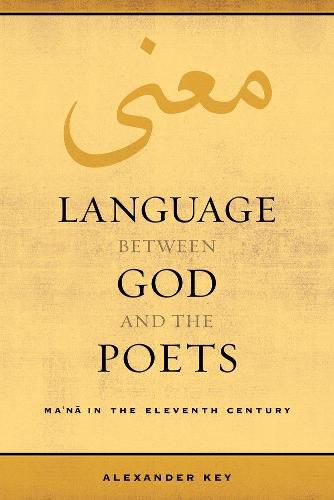Readings Newsletter
Become a Readings Member to make your shopping experience even easier.
Sign in or sign up for free!
You’re not far away from qualifying for FREE standard shipping within Australia
You’ve qualified for FREE standard shipping within Australia
The cart is loading…






A free ebook version of this title is available through Luminos, University of California Press’s Open Access publishing program. Visit www.luminosoa.org to learn more.
In the Arabic eleventh-century, scholars were intensely preoccupied with the way that language generated truth and beauty. Their work in poetics, logic, theology, and lexicography defined the intellectual space between God and the poets. In Language Between God and the Poets, Alexander Key argues that ar-Raghib al-Isfahani, Ibn Furak, Ibn Sina (Avicenna), and Abd al-Qahir al-Jurjani shared a conceptual vocabulary based on the words ma'na and haqiqah. They used this vocabulary to build theories of language, mind, and reality that answered perennial questions: how to structure language and reference, how to describe God, how to construct logical arguments, and how to explain poetic affect.
$9.00 standard shipping within Australia
FREE standard shipping within Australia for orders over $100.00
Express & International shipping calculated at checkout
Stock availability can be subject to change without notice. We recommend calling the shop or contacting our online team to check availability of low stock items. Please see our Shopping Online page for more details.
A free ebook version of this title is available through Luminos, University of California Press’s Open Access publishing program. Visit www.luminosoa.org to learn more.
In the Arabic eleventh-century, scholars were intensely preoccupied with the way that language generated truth and beauty. Their work in poetics, logic, theology, and lexicography defined the intellectual space between God and the poets. In Language Between God and the Poets, Alexander Key argues that ar-Raghib al-Isfahani, Ibn Furak, Ibn Sina (Avicenna), and Abd al-Qahir al-Jurjani shared a conceptual vocabulary based on the words ma'na and haqiqah. They used this vocabulary to build theories of language, mind, and reality that answered perennial questions: how to structure language and reference, how to describe God, how to construct logical arguments, and how to explain poetic affect.